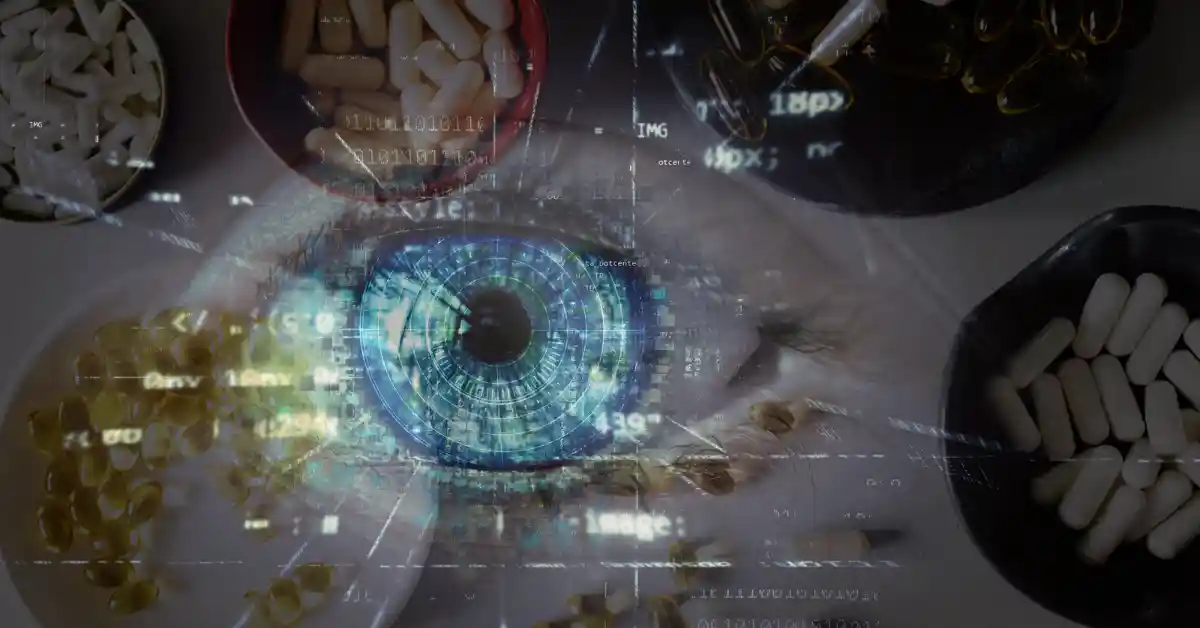Deficiencies in some vitamins can increase the risk of certain eye conditions so most are looking for eye vitamins for macular degeneration prevention. A healthy diet and the proper vitamins can help prevent or slow these conditions.
A study called the Age-Related Eye Disease Study, or AREDS found that taking a daily combination of antioxidants can reduce your risk of developing advanced AMD by 30%.
Vitamin A
Vitamin A is essential for a healthy retina and keeping corneas properly lubricated. Without it, the whites of your eyes become dry, and you may not produce enough tears (xerophthalmia). Foamy spots called Bitot spots appear in the whites of your eyes, and open sores on your corneas can form and lead to blindness.
In addition, vitamin A helps your body make certain pigments in the retina that allow you to see at night. Only your body can make these pigments if you have enough vitamin A in your diet.
The best way to get vitamin A is by eating a wide variety of foods, such as dairy products, meat, fish, poultry, eggs, and fortified foods. You also can get some vitamin A from supplements.
Another nutrient that can help with macular degeneration prevention is vitamin E. This nutrient reduces the presence of unstable molecules known as free radicals that can damage the cells in your retina.
In addition, lutein and zeaxanthin, which are yellow plant pigments, may help with macular degeneration. They are found in dark, leafy green vegetables, such as spinach and kale.
Vitamin C
If you have macular degeneration, your optometrist may recommend taking a vitamin C supplement. This can help prevent cellular damage to your macula by reacting with and deactivating free radicals, which are the molecules that cause deterioration of the macula and vision loss.
The macula is susceptible to free radicals and oxidative stress. Over time, this can lead to deterioration of the macula, which can cause blurred vision, poor night vision, and even complete blindness.
A recent review by the Cochrane Collaboration found evidence that taking vitamin C, vitamin E, or zinc supplements could slow the progression of macular degeneration in those who already have it. However, the review cautioned that these supplements aren’t effective for everyone and can harm specific populations, such as smokers.
Getting the right balance of vitamins and minerals from a balanced diet is best. You should also avoid foods with high levels of toxins, such as alcohol and caffeine.
Vitamin E
If you have macular degeneration, a vitamin E supplement may help slow the progression of the disease. This antioxidant scavenges free radicals that damage retinal cells and contribute to the disease.
You can get vitamin E from certain foods and supplements, including almonds, pine nuts, sunflower seeds, and other seed oils. A single ounce of seeds can supply more than half your recommended daily intake of vitamin E.
However, vitamin E can be toxic if taken in high doses and if you have other health conditions or are in poor health. You should always consult with your doctor before taking any vitamins or supplements.
Vitamin E is a fat-soluble vitamin important for fatty acid metabolism and the health of your skin, eyes, and heart. It is also an effective antioxidant and helps prevent oxidative stress. It can also reduce your risk of cardiovascular disease by improving lipid levels and decreasing the production of harmful LDL cholesterol.
Selenium
As part of a healthy diet, the eyes need nutrients that can help prevent macular degeneration, an age-related eye disease that causes blurred vision and other symptoms. A lot of research has been conducted to determine which vitamins and supplements can slow the progression of the disease and help improve your quality of life.
One of the essential nutrients is selenium. This trace mineral plays a role in reproduction, thyroid hormone metabolism, and DNA synthesis, and it protects against oxidative stress.
It also helps prevent some diseases, such as cardiovascular disease and cognitive decline. It may also help reduce your cancer risk and decrease the severity of some eye conditions.
Selenium is most commonly found in food sources such as meats, poultry, fish, shellfish, and eggs. It is also found in dietary supplements such as selenomethionine and sodium selenite.
While selenium is a necessary nutrient, many people are low on this trace mineral. Deficiency can predispose people to certain illnesses, such as Keshan disease when combined with additional stresses. It can also exacerbate male infertility, reduce thyroid function and increase the risks of other health problems.
Omega-3 Fatty Acids
Omega-3 Fatty Acids can be found in many food sources, such as fatty fish, nuts, and seeds. They are important for many different functions in the body, including eye health.
Omega 3 fatty acids come from eicosapentaenoic acid (EPA) and docosahexaenoic acid (DHA). Both EPA and DHA are essential for good eye health and can be found naturally in a healthy diet.
Research has also shown that a healthy diet rich in these fatty acids may help protect against dry eyes and other eye conditions. Studies have even looked at how these nutrients can improve vision development in infants.
Researchers recently conducted a double-blind clinical trial of the AREDS2 study, which investigated whether Omega-3 fatty acids would slow or prevent the progression of age-related macular degeneration. They found that taking Omega-3 supplements for up to 5 years did not slow the progression of AMD or reduce vision loss, compared to a placebo group.
